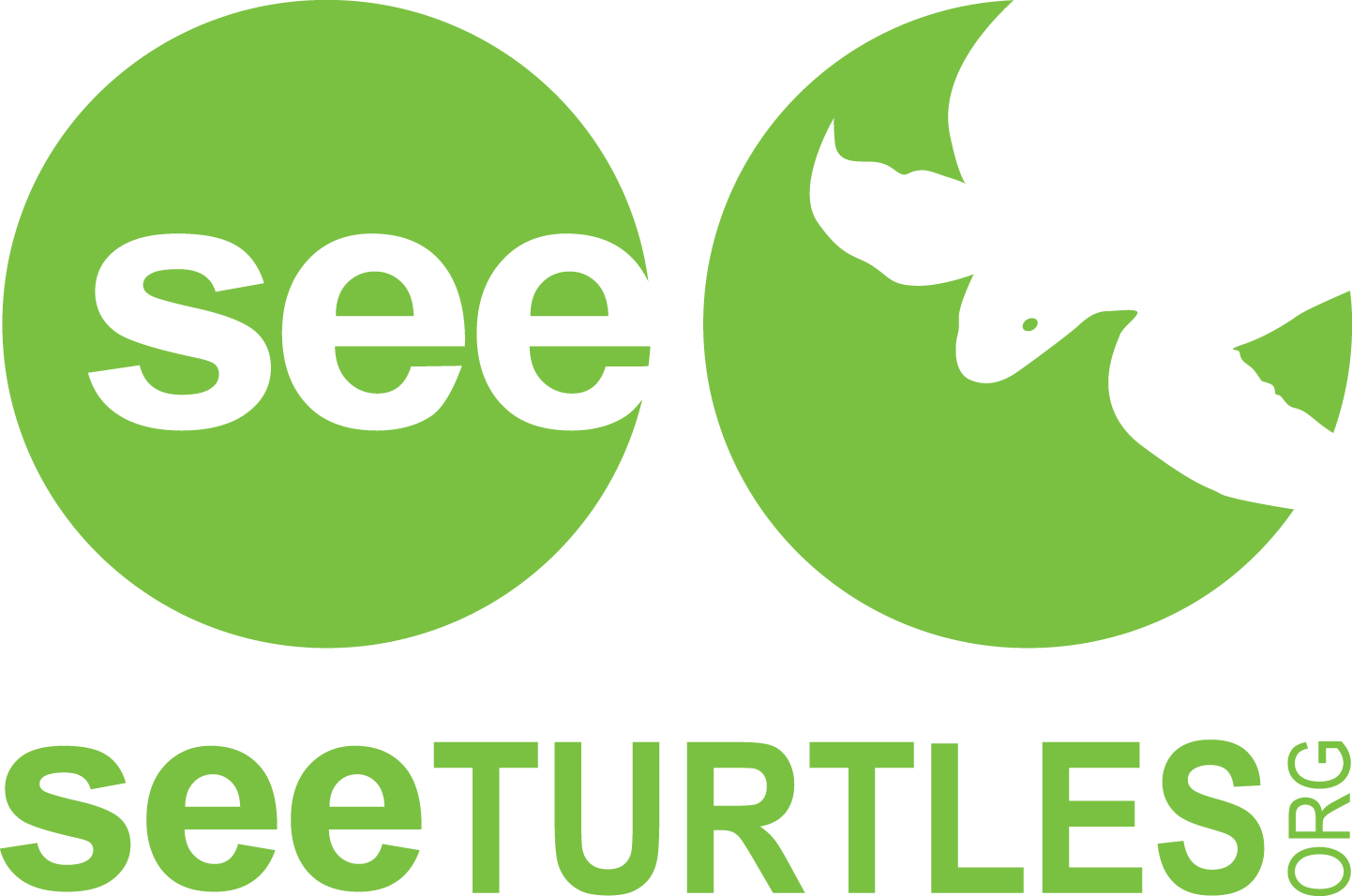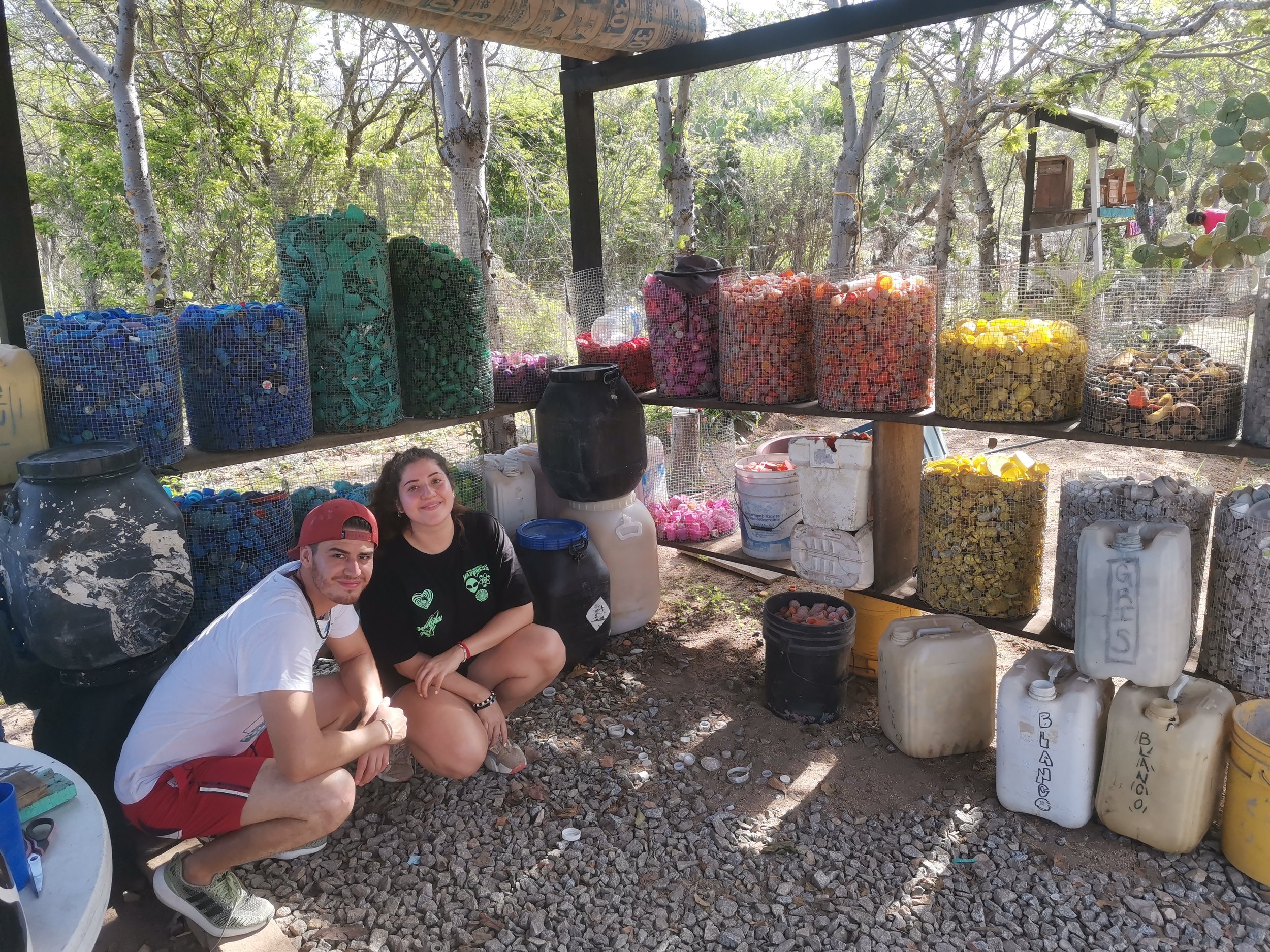2022 Year In Review
This has been a great year for saving sea turtles! With tremendous support from our donors, sponsors, schools and travelers, we have made a real difference for protecting these endangered animals around the world. We have protected more hatchlings than ever, created innovative new tools for addressing the illegal wildlife trade, and expanded our programs to address plastic pollution, support local communities, and rally support for these animals with Sea Turtle Week. Read on for more below and look out for our 2023 goals in early January.
Billion Baby Turtles:
This program supports important turtle nesting beaches around the world. We raise funds from sponsors, donors, students, and our conservation trips to provide critical support to community oriented projects across the globe. Learn more about Billion Baby Turtles here.
In 2022, this program protected an estimated 3.2 million baby turtles. This is a 70% increase from 2021 and by far our biggest year to date. We gave a total of 48 grants totaling US $273,000, These grants have supported the work in 60+ beaches in 19 different countries.
From these 48 grants, 2 have been for the Emergency Fund program, 2 Survey Grants, 11 new BBT partners and 33 long-term supported partners.
With these grants, we have supported the salaries of 156 local residents, benefitting the coastal communities where sea turtles nest.
To date, we have provided more than 150 grants totaling over US $900,000 that has helped to save more than 9 million endangered turtle hatchlings at 60+ beaches in 23 countries.
This year we worked with several large brands to expand our support for turtle nesting beaches. Partnerships with Soda Stream, Joy Suds, and Next Earth, along with growth from partners like Loci Shoes and sustained support from long-term partners Nature’s Path and Endangered Species Chocolate have made this success possible.
Olive ridley hatchling from Mexico, courtesy Hal Brindley / TravelForWlidlife.com
Sea Turtles & Plastic:
We launched the Sea Turtles & Plastic program in late 2021 as a way to reduce plastic waste in sea turtle habitats and support local efforts to recycle that waste into useful products that support conservation efforts and local communities. Learn more about this program here.
In 2022, we funded four projects working to reduce plastic in sea turtle habitats. Those grants included: Eco Mayto (Mexico), Karumbe (Uruguay), Juara Turtle Project (Malaysia), and Fundacao Principe (Principe Island).
Through a partnership with Dots.Eco, we funded an additional 8 projects that conduct beach cleanups in 6 countries. These projects will collect an estimated 350,000 lbs of waste over the next year.
We took over management of the Travelers Against Plastic campaign and are growing this project to encourage reducing plastic waste in travel and daily life. We completed a website redesign, launched a monthly newsletter, and have grown the social media following to more than 5,000 people across three channels.
We launched our Sustainable Travel Sponsorships to increase support for plastic reduction and our other programs. We have added 12 new sponsors to the organization including leading operators Natural Habitat Adventures, Exodus Travels, Greenspot Travel, and others.
Eco Mayto Recycling Station. Photo courtesy Eco Mayto
Too Rare To Wear
The Too Rare To Wear campaign has been working to end the tortoiseshell trade since 2017. We provide tools, research, and funding to help partners around the world study and address this trade. Learn more about this program here.
We launched the SEE Shell App in March 2022 as the first app that uses machine learning to identify illegal tortoiseshell products. Working with partners around the world, we created the app, tested it in multiple locations, and got strong media coverage including in National Geographic. The app is between 90-93% accurate in telling which products are or are not tortoiseshell. To date, the app has been downloaded more than 1,000 times in 23 countries.
In connection with the app launch, we worked with partners in several countries to train government officials, local leaders and others, including:
Panama: Too Rare To Wear funded a two week-long series of workshops and visits on the hawksbill trade in Panama with our partners at the Leatherback Project, Fundacion Tortugas del Mar, and representatives of the Panamanian Ministry of the Environment and Navy. They completed tortoiseshell surveys in 6 shopping areas in and around Panama City, finding these products for sale in 5 sites. In addition, three high end jewelry shops in a prominent mall indicated that polleras (elaborate crowns made for special events) made from tortoiseshell could be made with an advance deposit.
Colombia: We have continued our long-term support for and collaboration with Fundacion Tortugas del Mar to study and address the tortoiseshell trade along Colombia’s Caribbean coast. Their work over the past decade has helped to dramatically reduce the trade in the city of Cartagena, one of the top spots for this trade in the hemisphere. They conducted three workshops in Coveñas with more than 300 participants from the Colombian Army, national police department, and others.
The foundation also conducted new tortoiseshell surveys in Cartagena and Santa Marta. A total of nearly 250 shops were visited in Cartagena, fortunately with just 4 shops selling these products (a steep decline from 10 years ago). In cooperation with local authorities, the Fundacion conducted enforcement surveys in the coastal cities of Cartagena, Coveñas, and Tolu. 134 pieces of hawksbill were found and confiscated at the San Felipe Castle, a well-known tourist spot in Cartagena. In addition, a total of 45 pieces of tortoiseshell were confiscated from shops in Tolu and another 19 in Coveñas, the first time this action has been taken in these two towns.
Indonesia: Our partners Turtle Foundation and Yayasan Penyu Indonesia organized a workshop in the Central Sulawesi region. This activity was attended by 21 people from various stakeholders, including: Natural Resources Conservation Center (BKSDA) in Central Sulawesi, Fish Quarantine and Quality Control Station (KIPM), Ministry of Marine and Fisheries Affairs, and others. In addition, Turtle Foundation & Yayasan Penyu Indonesia are conducting a large outreach campaign that will include advertising on tv, radio, and social media, creation of outreach materials including signage, shirts, and costumes to use for student education. Our funds will help to train local artisans in alternative materials to allow them to stop selling tortoiseshell, as well as business training.
Collaboration with WWF
Our collaboration with WWF Australia has been extremely fruitful, starting with their office sharing tortoiseshell images to train the machine learning model. Their staff provided input and helped to test the app in the early stages. The WWF Australia team has also connected us with other WWF offices including their Coral Triangle Program, the WWF Asia Pacific Counter-Illegal Wildlife Trade Hub and WWF Singapore amongst others.
Key components of this collaboration include:
SEE Shell is being showcased in a toolkit for the TRIPOD Project (Targeting Regional Investigations for Policing Opportunities & Development), which is a collaborative project of Freeland Foundation, WWF, and IFAW.
Highlighting SEE Shell as part of WWF’s ShellBank – Marine Turtle Traceability and Forensics Training workshops led by the Global Marine Turtle Conservation Lead (WWF-Coral Triangle Program). This is part of the TRIPOD project in partnership with WWF in Malaysia, Indonesia, and the Philippines. A total of 30 participants from 10 law enforcement agencies from Sabah Malaysia have participated to date.
We worked with WWF to plan an event at the Convention on International Trade of Endangered Species (CITES). The event showcased new technologies and tools to track the illegal sea turtle trade, including SEE Shell.
Sea Turtle Conservation Trips
We offer unique opportunities to see and work with sea turtles including Costa Rica, Mexico, Belize, Panama, the Galapagos, and elsewhere. To date, we have generated more than $1 million for conservation and local communities and taken more than 1,300 people to visit conservation projects. Learn more about our conservation trips here.
Highlights from 2022 Conservation Tours
We held 10 trips for a total of 77 travelers this year. These travelers generated more than $80,000 for conservation efforts and $40,000 for local communities. Our travelers also completed 270 volunteer shifts. Learn more about our conservation impact pricing.
We launched new trips this year to the Galapagos, Costa Rica, Oaxaca Mexico, and Panama, extending our impact to more communities and conservation partners.
Escobilla Beach, Oaxaca Mexico. Photo courtesy Tui DeRoy
Inclusivity Fund:
In 2021, we began our Sea Turtle Inclusivity Fund to invest in building the capacity of local residents, minorities, and underrepresented groups. We provide grants to support new field work positions as well as for leaders in communities near turtle hotspots. Learn more about this program.
In 2022 we gave a total of 4 grants in to young leaders in 4 different countries:
Busdar Marabatuan (Indonesia, 2022): Local Community Grant
Daneira Brown (Panama, 2022): Fieldwork Grant
Angelica Burgos (Venezuela, 2022): Fieldwork Grant
Henry John (Papua New Guinea, 2022): Local Community Grant
A total of $10,517 was intended to create 3 new jobs (2 as ranger coordinators and one as a program coordinator) for local communities and to support 2 students to do their fieldwork working with marine turtles in order to get their degree as Biologists.
Inclusivity Fund recipient Busdar Marabatuan. Photo courtesy PAMALI.
Sea Turtle Week
Sea Turtle Week is a week-long celebration of sea turtles around the world started in 2019. The event takes place each June, between June 8th (World Oceans Day) and June 16th (World Sea Turtle Day). Learn more about this program here.
We had 13 new partners join the campaign in 2022, bringing our total to 171 conservation partners in 45 countries around the world who participate in Sea Turtle Week events.
Sea Turtle Week content reached 8.1 million viewers from around the world.
More than 6,500 users visited SeaTurtleWeek.com to view our online resources.
We had on the ground partner visits with Loggerhead Marinelife Center and Inwater Research, where we posted live daily content about the work they do.
We grew our Sea Turtle Week social media followers to 9,000+ user across Facebook, Instagram, and Twitter. More than 2,500 posts were created online using the hashtag #SeaTurtleWeek. We saw 110,000k interactions on our online posts.





